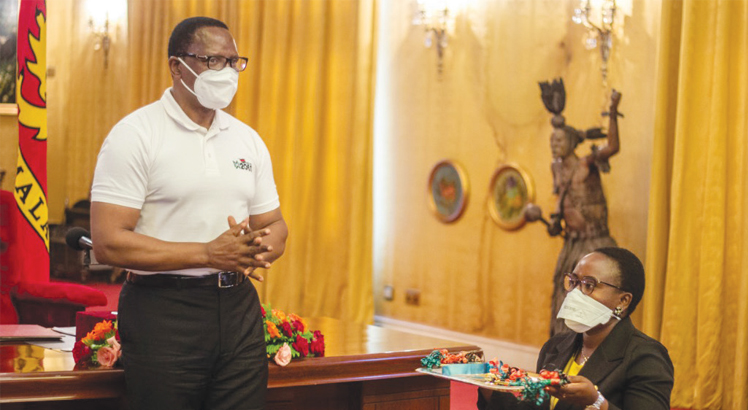Aford against linking party manifesto to MW2063
Despite the enactment of a law which compels political parties to align their manifestoes to the count ry ’s long-term development blueprint, Malawi 2063, the Alliance for Democracy (Aford) says it is against such a move.
In an interview, Aford president Enoch Chihana said he is against the legal provision and that his party will develop a manifesto based on its own ideas.
He said if their manifesto is rejected because it is not aligned to the country’s national agenda, they will challenge such a decision in the court of law.

Chihana said: “If we are all forced to align our manifestoes to one agenda, then what is the purpose of competing? In a democracy, ideas must compete. No one should force us to adopt a plan they think will work for Malawi. We know what can work and we must be allowed to sell our ideas.”
In the last meeting, Parliament amended the Political Parties Act to include a provision which now makes it mandatory for political parties to align their manifestoes to the national agenda, the Malawi 2063.
The aim of the provision is to foster national development and ensure continuity of national projects regardless of regime change.
Legal Affairs Committee of Parliament chairperson Peter Dimba confirmed in an interview that this amendment is now law after being assented to by the State President Lazarus Chakwera.
The amended Section 12 (A) of the Political Parties Act (2018) gives powers to the Registrar of Political Parties not to register any political party “unless its manifesto is aligned to the national development agenda applicable at the time of registration”.
Further to this, any political party that intends to register has to submit a manifesto to the National Planning Commission (NPC) to check if it is aligned to the national agenda.
Proponents of this new piece of legislation, including NPC, say this will foster national development which usually suffers as regimes pursue their own short-term agendas for political reasons.
According to proponents, this will allow for continuity of development projects regardless of regime change.
But Chihana said they are totally against this new legal provision such that the party’s executive committee met in Lilongwe recently where they agreed to develop an Aford manifesto without minding the dictates of the national agenda.
In separate interviews both a legal expert Chrispin Sibande and political analyst Makhumbo Munthali agreed with Chihana and faulted the law, saying it is unconstitutional and undemocratic.
Sibande said the amendments violate the Constitution of Malawi where “political parties and leaders of political parties have the right to freedom of opinion and freedom of expression” through the development of manifestos and the right to sell the contents of manifestos to the population.
He observes: “The Constitution provides for the right to freedom of opinion and freedom of expression. The amendment [therefore] violates political rights which are also provided under Section 40 of the Constitution of Malawi.”
On his part, Munthali said while the amendment survives on the assumption that there is national consensus on the agenda as the best plan to move forward, it limits political choices.
“This may suppress some more progressive ideas from future candidates. So, the only challenge is that it can limit the political freedoms for political parties, especially at a marketplace where there is competition of ideas,” he said.





